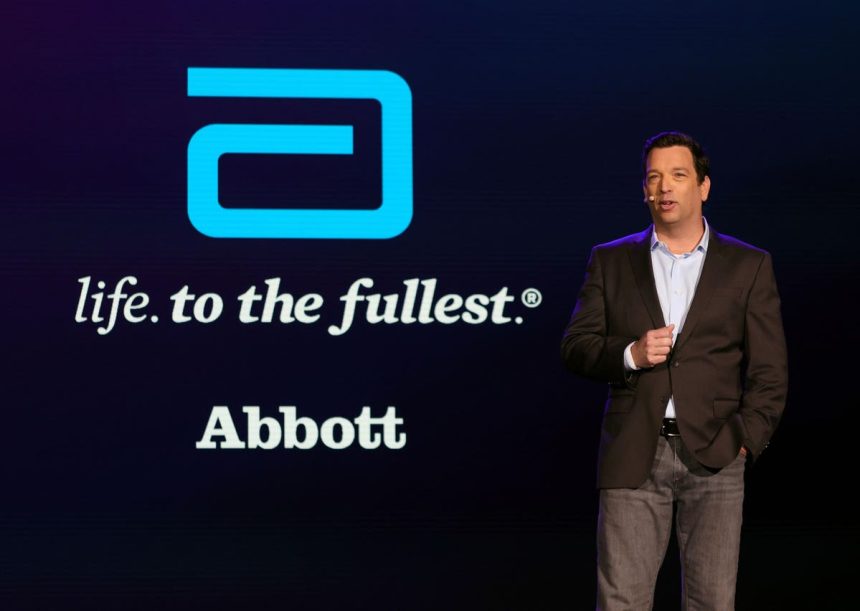We believe Thermo Fisher Scientific stock (NYSE: TMO) is a better pick than its sector peer, Abbott stock (NYSE: ABT), given its better prospects. TMO trades at a slightly higher valuation multiple of 4.9x revenues vs. 4.4x for ABT due to its superior revenue growth. Looking at stock returns, both have underperformed vis-à-vis broader markets. While ABT is down 6% this year, TMO is up 1%, and the S&P500 index is up 18%. There is more to the comparison, and in the sections below, we discuss why we believe that TMO will offer better returns than ABT in the next three years. We compare a slew of factors, such as historical revenue growth, returns, and valuation, in an interactive dashboard analysis of Abbott vs. Thermo Fisher Scientific
TMO
Interestingly, ABT has had a Sharpe Ratio of 0.7 since early 2017, while the figure stood at 1.0 for TMO, higher than 0.6 for the S&P 500 Index over the same period. Still, they fall short of the Sharpe of 1.3 for the Trefis Reinforced Value portfolio. Sharpe is a measure of return per unit of risk, and high-performance portfolios can provide the best of both worlds.
1. Thermo Fisher Scientific’s Revenue Growth Is Better
- Thermo Fisher Scientific’s revenue growth has been better, with a 21% average annual growth rate in the last three years, compared to 11% for Abbott.
- A high demand for Covid-19 testing drove Abbott’s sales growth in recent years.
- Thermo Fisher Scientific manufactures analytical laboratory instruments used in various tests, and the pandemic has increased demand for these instruments. Its sales growth is buoyed by continued market share gains for its instruments.
- Even if we look at the last twelve-month period, Thermo Fisher Scientific fares better with sales growth of 2% vs. -12% for Abbott.
- With the worst of Covid-19 behind us, the demand for testing has been declining, weighing on Abbott’s diagnostics business in recent quarters.
- Thermo Fisher Scientific has seen a good 15% growth in 2022, primarily driven by its Laboratory Products & Biopharma Services segment, which saw a substantial 51% y-o-y growth. This can be attributed to its December 2021 acquisition of PPD
PPD
- Our Abbott Revenue Comparison and Thermo Fisher Scientific Revenue Comparison dashboards provide more insight into the companies’ sales.
- Looking forward, Thermo Fisher Scientific’s revenue is expected to grow much faster than Abbott’s over the next three years.
- Abbott will see a dip in sales in 2023 owing to its diagnostics business. For perspective, Abbott expects total Covid-19-related sales of $1.3 billion in 2023, compared to $8.4 billion last year. However, it should return to growth next year, and its other businesses, including Medical Devices and Established Pharmaceuticals, should continue to grow steadily. Thermo Fisher Scientific expects its organic sales to rise between 2% and 4% in 2023. The sales growth will likely improve in 2024 and beyond.
- Note that we have different methodologies for companies negatively impacted by Covid and those not impacted or positively impacted by Covid while forecasting future revenues. For companies negatively affected by Covid, we consider the quarterly revenue recovery trajectory to predict recovery to the pre-Covid revenue run rate. Beyond the recovery point, we apply the average annual growth observed three years before Covid to simulate a return to normal conditions. For companies registering positive revenue growth during Covid, we consider yearly average growth before Covid with a certain weight to growth during Covid and the last twelve months.
2. Abbott And Thermo Fisher Scientific Have Similar Operating Margin
- Abbott’s operating margin has risen from 16.1% in 2019 to 20.4% in 2022, while Thermo Fisher Scientific’s operating margin declined marginally from 20.6% to 20.3% over this period.
- Looking at the last twelve-month period, Thermo Fisher Scientific’s operating margin of 15.4% aligns with 15.2% for Abbott.
- Our Abbott Operating Income Comparison and Thermo Fisher Scientific Operating Income Comparison dashboards have more details.
- Looking at financial risk, Abbott fares better with its 9% debt as a percentage of equity lower than 16% for Thermo Fisher Scientific and its 11% cash as a percentage of assets higher than 3% for the latter, implying that Abbott has a better debt position and more cash cushion.
3. The Net of It All
- We see that Thermo Fisher Scientific has demonstrated better revenue growth and is equally profitable. On the other hand, Abbott has a better debt position and cash cushion and is trading at a slightly lower valuation multiple.
- Now, looking at prospects, using P/S as a base, due to high fluctuations in P/E and P/EBIT, we believe Thermo Fisher Scientific is still the better choice of the two despite its higher valuation.
- If we compare the current valuation multiples to the historical averages, Abbott fares marginally better, with its stock currently trading at 4.9x revenues vs. the last five-year average of 5.9x. In contrast, Abbott’s stock trades at 4.4x trailing revenues vs. the last five-year average of 5.4x.
- Our Abbott Valuation Ratios Comparison and Thermo Fisher Scientific Valuation Ratios Comparison have more details.
While TMO may outperform ABT over the next three years, it is helpful to see how Abbott’s Peers fare on metrics that matter. You will find other valuable comparisons for companies across industries at Peer Comparisons.
With higher inflation and the Fed raising interest rates, among other factors, ABT stock has declined 6% this year. Can it drop from here? See how low Abbott stock can go by comparing its decline in previous market crashes. Here is a performance summary of all stocks in previous market crashes.
Invest with Trefis Market Beating Portfolios
See all Trefis Price Estimates
Read the full article here




